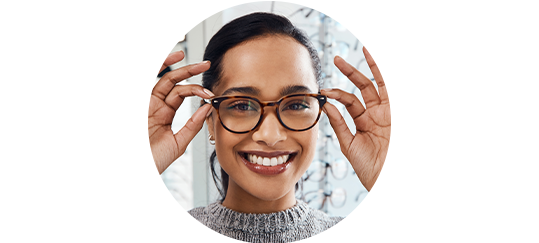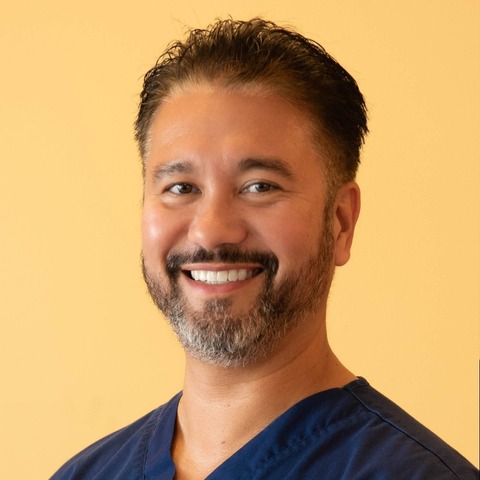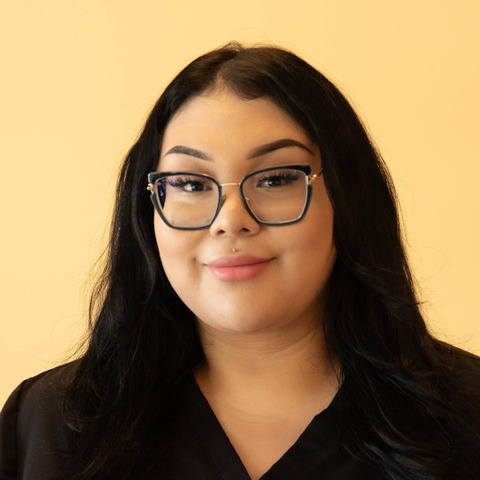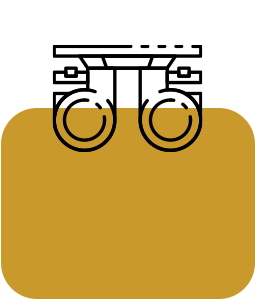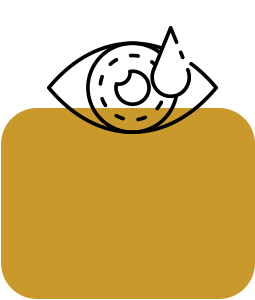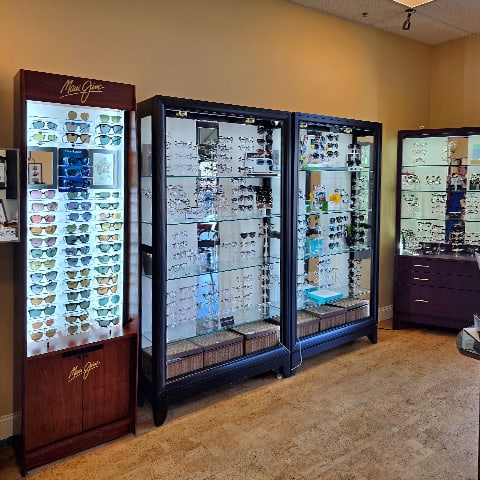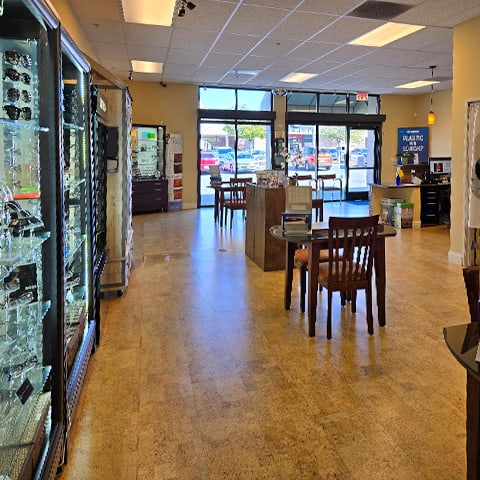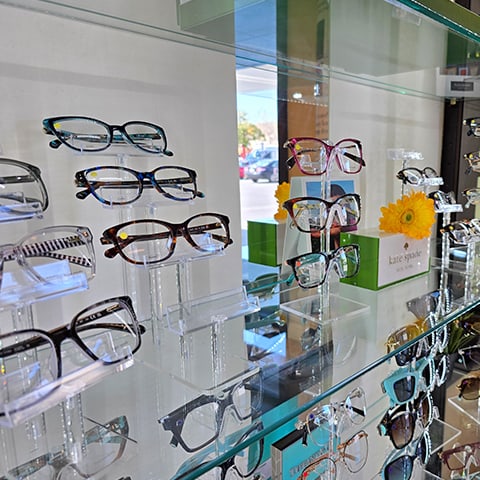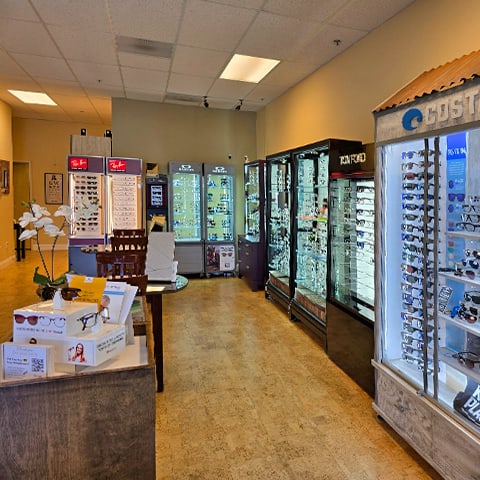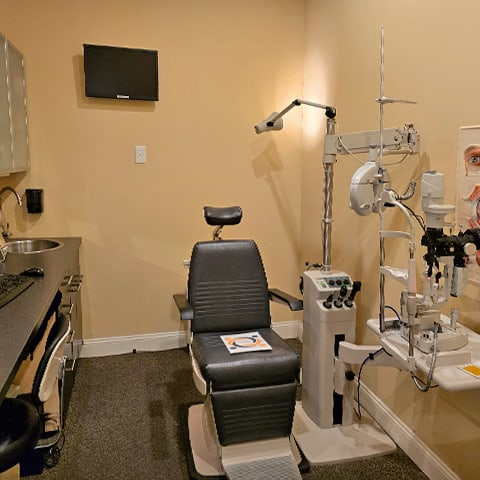Your Vision Is Our Priority
At Foresight Optometry, we blend professional medical care with quality, fashionable eyewear to create a seamless eye care experience. Our services include thorough eye exams, contact lens exams and fittings, dry eye relief treatments, and myopia control for children. We also offer options for managing different types of eye diseases such as glaucoma, cataracts, eye infections, and diabetic retinopathy.
We understand that our patients trust us with their eyes and vision, and we strive to provide every patient with attentive, professional service that focuses on comfort and results.
Contact us to schedule your next appointment today—we can’t wait to be a part of your eye health journey.

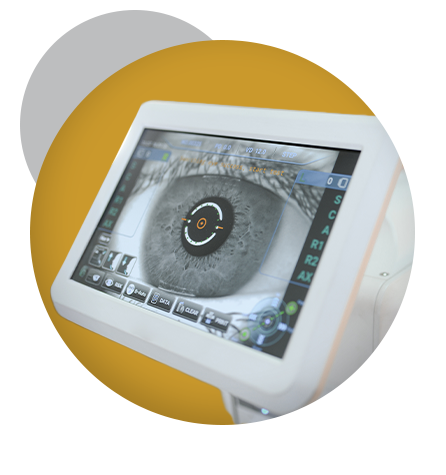
Empowering Vision, Enriching Lives
At Foresight Optometry, our mission is to enhance lives by enhancing vision. We are committed to providing customized eye care solutions, using proven technology and fostering a culture of education. Our goal is to ensure that everyone who walks through our doors—patients and staff alike—feels like a valued part of our team.
Through integrity, hard work, dedication, and collaboration, we strive to deliver care that not only meets but exceeds expectations, leading to high patient satisfaction and improved quality of life.
Your Insurance Information
Foresight Optometry works with many insurance carriers and payment plans, including:
- Blue View Vision
- Cigna
- EyeMed
- Medicare
- MetLife
- Blue Cross (Anthem)
- Blue Shield
- Vision Service Plan (VSP)
- Tricare
- UnitedHealthcare
Please contact our office to see if we can work with your insurance carrier or vision care plan. Our friendly and informed staff will happily answer any questions you may have.
Check Out Our Promotions
Check back in with our promotions regularly to find new deals and ways to save on eye care and eyewear:
- Alcon: Current wearer rebate
- Alcon: New wearer premier rebate
- Acuvue: Save up to $350* on select Acuvue contact lenses
- Bausch+Lomb: Receive up to $250 in rewards on your Bausch + Lomb Contact Lenses
- CooperVision: Biofinity® XR toric wearers can save up to $50
- CooperVision: New Wearers can save up to $225* on select contact lenses
- CooperVision: Current Wearers can save up to $200* on select contact lenses
Investing in the Future of Our Community
At Foresight Optometry, we are proud to support our local community through partnerships with schools and organizations such as:
- Wood Rose Academy & Preschool
- Myrtle Farm Montessori School in Concord
- Queen of All Saints School
- The Walnut Country Swim Team
We believe in giving back and fostering a healthy, vibrant community by providing eye health educational resources and special care to local families. Through these partnerships, we aim to make a positive impact on the lives of those around us.
Frequently Asked Questions
What is optometry?
Optometry is about taking care of your eyes and helping you see better. Optometrists, also called Doctors of Optometry, perform comprehensive eye exams to assess vision and eye health. They can also prescribe eyeglasses or contact lenses if needed and diagnose and treat eye conditions like glaucoma, macular degeneration, and cataracts.
What are the most common eye conditions optometrists treat?
Optometrists can help with common eye problems like myopia (nearsightedness), hyperopia (farsightedness), and astigmatism. Our optometrists offer myopia control management to help control nearsightedness. Common medical conditions treated by optometrists are glaucoma, macular degeneration, cataracts, and dry eyes.
Can you treat eye emergencies, such as pink eye or eye injuries?
Yes, our optometrists can diagnose and treat many eye emergencies, such as infections or injuries. If you have an urgent eye issue, please contact our office as soon as possible.
Do you offer pediatric eye exams?
Yes, we provide eye exams for children ages 5 years and up to assess their visual development and address any potential issues early.
Do I need an appointment for an eye exam?
Yes, scheduling an eye exam appointment is recommended so that you can receive timely and personalized care.
How often should I have an eye exam?
Our team highly recommends having an eye exam 1 to 2 years. Most insurances allow for an eye exam every year. If you wear glasses or contact lenses, your prescription may change over time, even within a year. Regular eye exams can also help detect eye conditions and diseases in their early stages or monitor existing eye conditions and diseases.
How long does an eye exam typically take?
A comprehensive eye exam usually takes about 20–40 minutes, but this can vary based on the complexity of your eye health and vision needs.
What should I bring to my eye exam?
Please bring your current eyeglasses or contact lens prescription. Before your appointment, we ask that you complete the patient intake form. This allows us to prepare for your appointment in advance so our doctors can focus on your specific needs while you are in the office.
What are common signs of eye problems?
Common signs include:
- Blurred vision
- Eye pain or discomfort
- Redness
- Dryness
- Excessive tearing
- Headaches
- Sudden vision changes
If you experience flashes of light, call our office immediately.
What are the signs of a vision problem in children?
Signs may include:
- Frequent eye rubbing
- Squinting
- Holding objects very close
- Difficulty reading the whiteboard at school
- Complaining of headaches or eye discomfort
What are the signs of an eye infection?
Signs of an eye infection may include:
- Redness
- Itching
- Discharge
- Pain
- Vision changes
If you suspect an eye infection, contact our office, and we will schedule you with our experienced team.
Can I buy eyeglasses and contact lenses from your office?
Yes, we offer a wide selection of frames and contact lenses. Our team will help advise you on what frames and lens options are best for your specific lifestyle and needs. We can also help you with fittings and adjustments.
Should I wear blue light glasses?
Whether or not you should wear blue light glasses depends on your specific needs and lifestyle. Blue light glasses are designed to filter or block a portion of the blue light emitted from digital screens, smartphones, and other electronic devices.
It’s important to note that the effectiveness of blue light glasses can vary depending on the quality of the lenses and the specific wavelengths of blue light they filter. We can offer you lens options to protect your eyes from harmful blue light.
How can I protect my eyes from UV radiation?
Wearing sunglasses that block 100% of UVA and UVB rays is essential to protecting your eyes from UV rays that can harm your eyes. We can help you choose appropriate protective eyewear.
Can I get contact lenses even if I have astigmatism or presbyopia?
Yes, there are contact lenses designed for astigmatism (toric lenses) and presbyopia (multifocal or bifocal lenses). Our team can recommend the best option for your needs.
What is myopia control?
Myopia control refers to various methods and treatments for slowing the progression of myopia, also known as nearsightedness.
Myopia typically develops during childhood and can worsen over time, potentially leading to high levels of myopia, which are associated with an increased risk of eye conditions such as retinal detachment, glaucoma, and cataracts.
What are some common methods for myopia control?
Common methods for myopia control include orthokeratology (ortho-k) and atropine eye drops, multifocal contact lenses and glasses, increased outdoor time, and lifestyle modifications like reducing prolonged near-work activities.
- Orthokeratology (ortho-k): This involves wearing specially designed rigid contact lenses overnight that reshape the cornea. These lenses are removed in the morning, allowing the person to see clearly without glasses or contact lenses throughout the day.
- Atropine eye drops: Low-dose atropine eye drops are sometimes prescribed to children to slow the progression of myopia. They work by relaxing the eye’s focusing mechanism, which can help reduce the growth of the eyeball.
Our myopia control clinic offers these methods. Our team can recommend the most suitable myopia control method based on your needs and circumstances.
How do I get started with myopia control?
To get started with myopia control, call our office to schedule an appointment with your optometrist. They will evaluate your eye health and provide personalized advice on myopia control, as each person’s situation is unique, and treatment plans should be tailored accordingly.
Can I use my medical insurance through my employer for my routine eye exam?
Most patients who have a medical plan through their employer have a medical and vision plan. They are separate. You would use your vision insurance for routine eye exams, eyeglasses and contact lenses.
Your medical insurance would be used for non-routine visits, such as eye infections and eye injuries, and appointments for ocular conditions and diseases, such as glaucoma and macular degeneration appointments.
What vision insurance do you accept?
Our office is in-network with VSP, EyeMed, and Blue View Vision and other insurance providers.
What if I do not know what my vision insurance is?
Unfortunately, there is no single system to use to find out what vision insurance you have. The best way to find out what vision plan you have is to review your benefits packet from your employer or ask your HR department at work.
How do I know what my insurance covers for glasses and contacts?
Every plan is different. Our opticians can help you understand what benefits you have for eyeglasses and contacts. At the end of your eye exam, we set aside time for our team to review your coverage with you.
Can I use Medicare for my annual eye exam?
Yes. If you have traditional Medicare insurance, you can use it for your annual exam. However, traditional Medicare only covers the medical evaluation of the exam with the doctor. It does not cover the refraction (prescription check), which would be an out-of-pocket cost.
Medicare Advantage plans differ from traditional Medicare insurance and supplemental plans. Most Medicare Advantage plans cover the refraction but have a copay for the visit.
Our office accepts traditional Medicare insurance and most Medicare Advantage PPO plans.
What if I do not have insurance?
We accept privately paid patients. To help out those without insurance, we offer discounted package pricing for eyeglasses.
Do You Accept Health Savings, such as HSA & FSA?
Yes! Many do not know they can use their HSA or FSA for optical needs. Your HSA or FSA can cover a wide range of optical needs, including:
- Eye exams and copays
- Glasses and contact lenses
- Non-prescription sunglasses
- Eye drops and solutions
- Dry eye treatments (e.g., IPL)
- Myopia control for kids
Take advantage of these accounts to save on taxes while caring for your vision. Need help? Our team is here to guide you!
What payment methods do you accept?
We accept various payment methods, including cash, credit/debit cards, Care Credit, and insurance.
Stop By Our Practice
Where to Park?
Free parking is conveniently located in the large lot outside our entrance.
Our Address
- 5442 Ygnacio Valley Rd., Suite 180
- Concord, CA 94521
Contact Information
- Phone: 925-672-4100
- Email: eyecare@foresightoptometry.com
Our Hours
- Monday: Closed
- Tuesday: 9:00 AM – 5:00 PM
- Wednesday: 9:00 AM – 5:00 PM
- Thursday: 9:00 AM – 5:00 PM
- Friday: 9:00 AM – 5:00 PM
- Saturday: 9:00 AM – 2:00 PM
- Sunday: Closed
Browse Our Eyewear Collection

